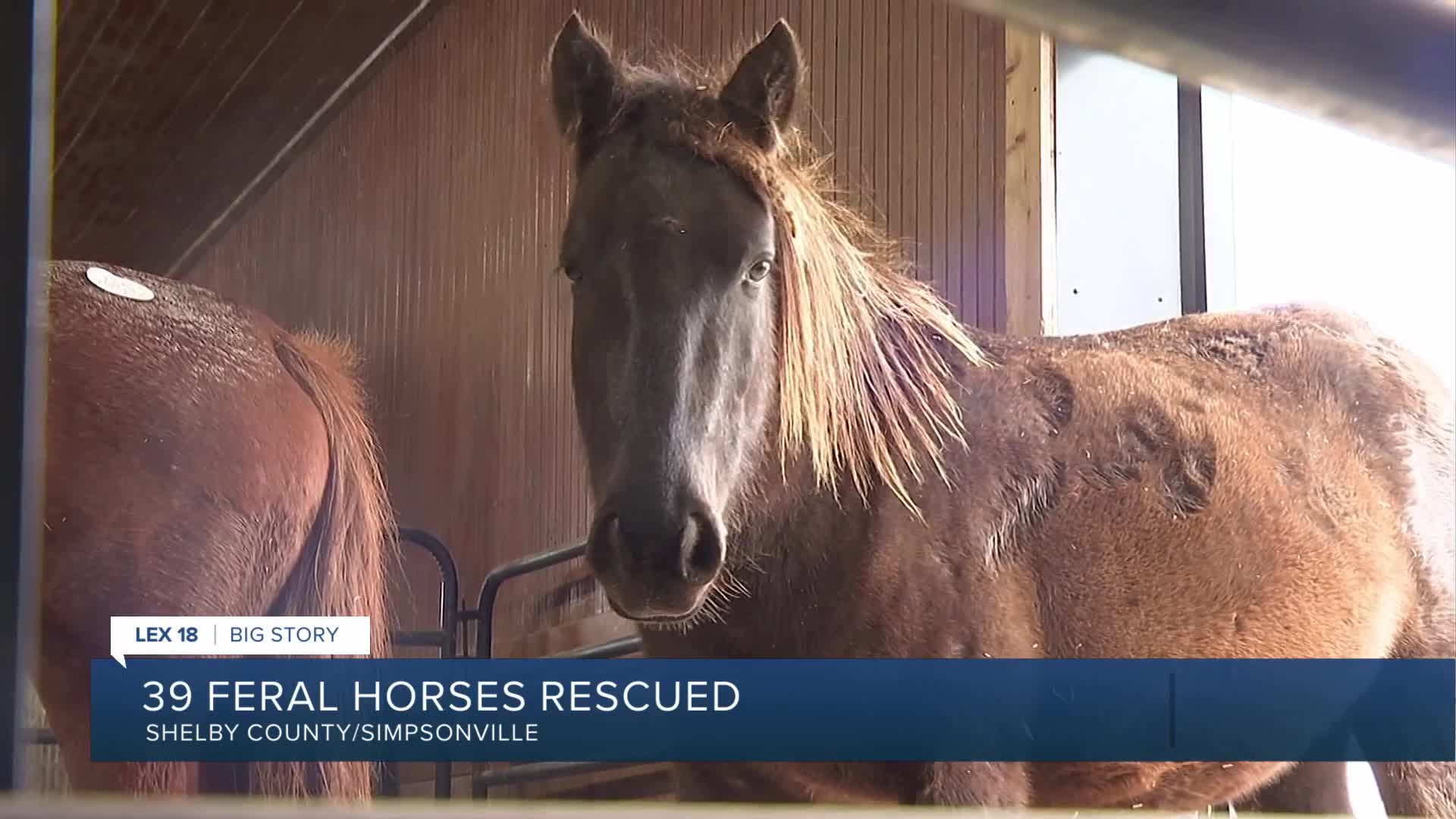LEXINGTON, Ky. (LEX 18) — From the hills of Eastern Kentucky to the safety of a rescue farm, nearly 40 feral horses have been given a second chance after animal rescue organizations stepped in to help.
The Kentucky Humane Society took in 27 of the 39 at-risk horses that were rescued Thursday from a reclaimed mine site in Eastern Kentucky. Nine of them now live at Willow Hope Farm in Simpsonville.
"If you imagine, like a mustang out west, they're completely wild," said Olivia Dixon, equine lead at the Kentucky Humane Society Equine C.A.R.E. program.
These horses may look gentle at first glance, but they're far from typical farm animals. They're feral horses, many born in the wild and unfamiliar with human touch.
"They don't want to be touched, they don't understand that we're here to help them," Dixon said.
The horses were collected by someone without proper authorization from local authorities from a reclaimed mine site until several nonprofits, including the ASPCA, Kentucky Humane Society, and Appalachian Horse Project stepped in to help.
"Sometimes the wrong people go out and get these horses basically just to make money off of them. Sell them by the pound or that sort of thing. So we just want to make sure they were cared for properly," Dixon said.
Dixon contacted other nonprofits to work together on dispersing the horses into organizations where they can be properly cared for.
It will be a while before the horses are healthy and socialized enough to be adoptable, as humanely taming feral horses is a lengthy process. Dixon estimates thousands of feral horses roam Eastern Kentucky, many suffering from vitamin and mineral deficiencies that can cause health issues.
"We have to keep these horses in our quarantine barn, they could all be sick and not yet manifesting yet. We keep them in this barn so we're not getting our other horses sick or our adoptable horses sick," Dixon said.
Many of the rescued mares are pregnant, meaning even more horses will soon need care.
"We're going through a lot of shavings and bedding, a lot of hay, these horses are mostly just going to need a lot of food and time," Dixon said.
If you'd like to help donate towards their care, click here: Equine C.A.R.E. - Kyhumane





